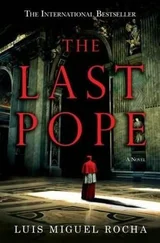John Dennis - The Age of Pope
Здесь есть возможность читать онлайн «John Dennis - The Age of Pope» — ознакомительный отрывок электронной книги совершенно бесплатно, а после прочтения отрывка купить полную версию. В некоторых случаях можно слушать аудио, скачать через торрент в формате fb2 и присутствует краткое содержание. Жанр: foreign_antique, foreign_prose, на английском языке. Описание произведения, (предисловие) а так же отзывы посетителей доступны на портале библиотеки ЛибКат.
- Название:The Age of Pope
- Автор:
- Жанр:
- Год:неизвестен
- ISBN:нет данных
- Рейтинг книги:3 / 5. Голосов: 1
-
Избранное:Добавить в избранное
- Отзывы:
-
Ваша оценка:
- 60
- 1
- 2
- 3
- 4
- 5
The Age of Pope: краткое содержание, описание и аннотация
Предлагаем к чтению аннотацию, описание, краткое содержание или предисловие (зависит от того, что написал сам автор книги «The Age of Pope»). Если вы не нашли необходимую информацию о книге — напишите в комментариях, мы постараемся отыскать её.
The Age of Pope — читать онлайн ознакомительный отрывок
Ниже представлен текст книги, разбитый по страницам. Система сохранения места последней прочитанной страницы, позволяет с удобством читать онлайн бесплатно книгу «The Age of Pope», без необходимости каждый раз заново искать на чём Вы остановились. Поставьте закладку, и сможете в любой момент перейти на страницу, на которой закончили чтение.
Интервал:
Закладка:
In 1713 Windsor Forest appeared. Through the most susceptible years of life the poet had lived in the country, but Nature and Pope were not destined to become friends; he looked at her 'through the spectacles of books' and his description of natural objects is invariably of the conventional type. Although never a resident in London he was unable in the exercise of his art to breathe any atmosphere save that of the town, and might have said, in the words of Lessing to his friend Kleist, 'When you go to the country I go to the coffee-house.' 11 11 Some qualification may be made to these statements. Pope took pleasure in landscape gardening on the English plan, as opposed to the formality of the French and Dutch systems, and the design of the Prince of Wales's garden is said to have been copied from the poet's at Twickenham.
The use, or as it would be more correct to say the abuse, of classical mythology in the description of rural scenes had the sanction of great names, and Pope was not likely to reject what Spenser and Milton had sanctioned. Gods and goddesses therefore play a conspicuous part in his description of the Forest. The following lines afford a fair illustration of the style throughout, and the sole merit of the poem is the smoothness of versification in which Pope excelled.
'Not proud Olympus yields a nobler sight,
Though gods assembled grace his towering height,
Than what more humble mountains offer here,
When in their blessings all those gods appear.
See Pan with flocks, with fruits Pomona crowned,
Here blushing Flora paints th' enamelled ground,
Here Ceres' gifts in waving prospect stand,
And nodding tempt the joyful reaper's hand;
Rich Industry sits smiling on the plains,
And peace and plenty tell a Stuart reigns.
Pope, who was never known to laugh, was a great wit, but his sense of humour was small, and the descent from these deities to Queen Anne savours not a little of bathos.
In 1712 Pope had published The Rape of the Lock , which Addison justly praised as 'a delicious little thing.' At the same time he advised the poet not to attempt improving it, which he proposed to do, and Pope most unreasonably attributed this advice to jealousy. In 1714 the delightful poem appeared in its present form with the machinery of sylphs and gnomes adopted from the mysteries of the Rosicrucians. Pope styles it an heroi-comical poem, and judged in the light of a burlesque it is conceived and executed with an art that is beyond praise. Lord Petre, a Roman Catholic peer, had cut off a lock of Miss Arabella Fermor's hair, much to the indignation of her family and possibly of the young lady also. Pope wrote the poem to remove the discord caused by the fatal shears, but its publication, and two or three offensive allusions it contained, only served to add to Miss Fermor's annoyance. 'The celebrated lady herself,' the poet wrote, 'is offended, and which is stranger, not at herself but me. Is not this enough to make a writer never be tender of another's character or fame?' But Pope, whose praise of women is too often a libel upon them, was not as tender as he ought to have been of the lady's reputation.
The offence felt by the heroine of the poem is now unheeded; the dainty art exhibited is a permanent delight, and our language can boast no more perfect specimen of the poetical burlesque than the Rape of the Lock . The machinery of the sylphs is managed with perfect skill, and nothing can be more admirable than the charge delivered by Ariel to the sylphs to guard Belinda from an apprehended but unknown danger. The concluding lines shall be quoted:
'Whatever spirit, careless of his charge,
His post neglects, or leaves the fair at large,
Shall feel sharp vengeance soon o'ertake his sins,
Be stopped in vials, or transfixed with pins;
Or plunged in lakes of bitter washes lie,
Or wedged, whole ages, in a bodkin's eye;
Gums and pomatums shall his flight restrain,
While clogged he beats his silken wings in vain;
Or alum styptics, with contracting power,
Shrink his thin essence like a rivelled flower;
Or, as Ixion fixed, the wretch shall feel
The giddy motion of the whirling mill,
In fumes of burning chocolate shall glow,
And tremble at the sea that froths below!'
Another striking portion of the poem is the description of the Spanish game of Ombre, imitated from Vida's Scacchia Ludus . 'Vida's poem,' says Mr. Elwin, 'is a triumph of ingenuity, when the intricacy of chess is considered, and the difficulty of expressing the moves in a dead language. Yet the original is eclipsed by Pope's more consummate copy.' 12 12 Elwin and Courthope's Pope , vol. ii. p. 160.
Many famous passages illustrative of Pope's art might be extracted from this poem, but it will suffice to give the portrait of Belinda:
'On her white breast a sparkling cross she wore,
Which Jews might kiss and infidels adore;
Her lively looks a sprightly mind disclose,
Quick as her eyes and as unfixed as those;
Favours to none, to all she smiles extends,
Oft she rejects, but never once offends.
Bright as the sun her eyes the gazers strike,
And, like the sun, they shine on all alike.
Yet graceful ease, and sweetness void of pride,
Might hide her faults, if belles had faults to hide:
If to her share some female errors fall,
Look on her face and you'll forget them all.'
The Temple of Fame , a liberal paraphrase of Chaucer's House of Fame , followed in 1715, and despite the praise of Steele, who declared that it had a thousand beauties, and of Dr. Johnson, who observes that every part is splendid, must be pronounced one of Pope's least attractive pieces. Two poems of the emotional and sentimental class, Eloisa to Abelard and the Elegy to the Memory of an Unfortunate Lady (1717), are more worthy of attention. Nowhere, probably, in the language are finer specimens to be met with of rhetorical pathos, but poets like Burns, Cowper, Wordsworth, and Tennyson can touch the heart more deeply by a phrase or couplet than Pope is able to do by his elaborate representations of passion. The reader is not likely to be affected by the following response of Eloisa to an invitation from the spirit world:
'I come, I come! prepare your roseate bowers,
Celestial palms and ever-blooming flowers.
Thither, where sinners may have rest, I go,
Where flames refined in breasts seraphic glow;
Thou, Abelard! the last sad office pay,
And smooth my passage to the realms of day;
See my lips tremble and my eye-balls roll,
Suck my last breath and catch my flying soul!
Ah no – in sacred vestments may'st thou stand,
The hallowed taper trembling in thy hand,
Present the Cross before my lifted eye,
Teach me at once and learn of me to die.'
The music or the fervour of the poem delighted Porson, famous for his Greek and his potations, and whether drunk or sober he would recite, or rather sing it, from the beginning to the end. The felicity of the versification is incontestable, but at the same time artifice is more visible than nature throughout the Epistle, and this is true also of The Elegy , a composition in which Pope's method of treating mournful topics is excellently displayed. The opening lines are suggested by Ben Jonson's Elegy on the Marchioness of Winchester , a lady whose death was also lamented by Milton. These we shall not quote, but take in preference a passage which is perhaps as graceful an expression of poetical rhetoric as can be found in Pope's verse.
'By foreign hands thy dying eyes were closed,
By foreign hands thy decent limbs composed,
By foreign hands thy humble grave adorned,
By strangers honoured, and by strangers mourned!
What though no friends in sable weeds appear,
Grieve for an hour, perhaps, then mourn a year,
And bear about the mockery of woe,
To midnight dances and the public show?
What though no weeping Loves thy ashes grace,
Nor polished marble emulate thy face?
What though no sacred earth allow thee room,
Nor hallowed dirge be muttered o'er thy tomb?
Yet shall thy grave with rising flowers be drest,
And the green turf lie lightly on thy breast;
There shall the morn her earliest tears bestow,
There the first roses of the year shall blow;
While angels with their silver wings o'ershade
The ground, now sacred by thy reliques made.'
Интервал:
Закладка:
Похожие книги на «The Age of Pope»
Представляем Вашему вниманию похожие книги на «The Age of Pope» списком для выбора. Мы отобрали схожую по названию и смыслу литературу в надежде предоставить читателям больше вариантов отыскать новые, интересные, ещё непрочитанные произведения.
Обсуждение, отзывы о книге «The Age of Pope» и просто собственные мнения читателей. Оставьте ваши комментарии, напишите, что Вы думаете о произведении, его смысле или главных героях. Укажите что конкретно понравилось, а что нет, и почему Вы так считаете.












